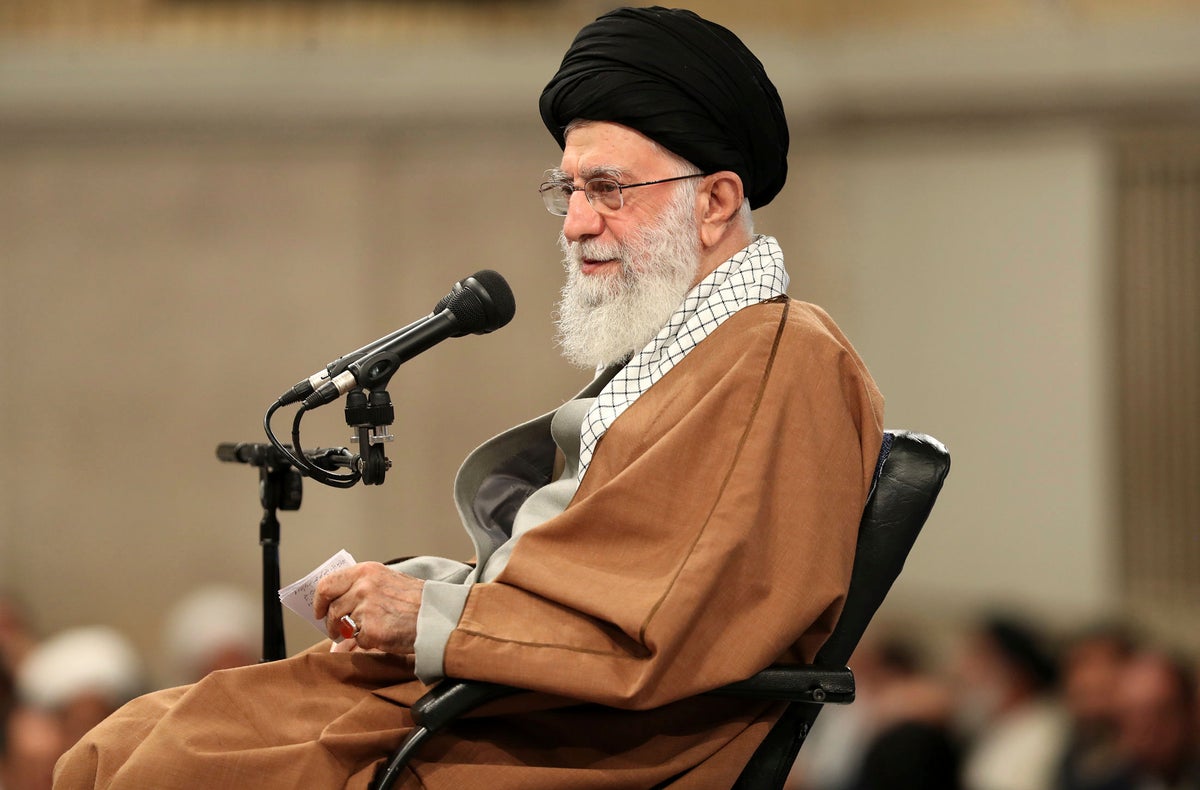
Iran has announced first arrests in connection with a spate of suspected poisonings that one official said numbered to more than 5,000 cases.
The announcement of the arrests comes a day after Iran’s supreme leader Ayatollah Ali Khamenei publicly spoke about the suspected poisonings for the first time on Monday.
Iran is trying to contain criticism of its response to the poisonings as well as the unprecedented protests sparked by the death of Mahsa Amini.
Reports of hundreds of cases of schoolgirls being poisoned using “chemical compounds” had emerged in recent days, some of which dated back to November last year.
Mohammad-Hassan Asafari, a member of a parliamentary fact-finding committee, was quoted as saying by AFP, citing the ISNA news agency, that “more than 5,000 schoolgirls and boys” were poisoned.
“Twenty-five (out of 31) provinces and approximately 230 schools have been affected, and more than 5,000 schoolgirls and boys poisoned,” he said.
“Based on the intelligence and research measures of the intelligence agencies, a number of people have been arrested in five provinces and the relevant agencies are conducting a full investigation,” deputy interior minister Majid Mirahmadi told state television on Tuesday.
He, however, did not provide specific details of the individuals who have been detained.
The Aytollah said perpetrators of the “unforgivable crime” should be punished by death if the crimes were deliberate.
“If the poisoning of students is proven, those behind this crime should be sentenced to capital punishment and there will be no amnesty for them,” Khamenei said, according to the state-run IRNA news agency.
Earlier in the week, three journalists and three dissidents were called in for questioning after allegedly challenging the government’s handling of the incidents.
“A number of people” suspected of manufacturing hazardous substances have been arrested in six provinces, including one student’s parent, the interior ministry said in a statement on Tuesday.
So far, the arrests have been made in Khuzestan, West Azerbaijan, Fars, Kermanshah, Khorasan and Alborz provinces.
The interior ministry statement that one of those arrested had allegedly used their child to insert the “irritant” into the school and then recorded videos of sick students that were sent to “hostile media” to “create fear... and close schools”.
It also added that three suspects have criminal records, “including involvement in the recent riots”.
Last week, Iran’s deputy health minister Younes Panahi said “certain individuals sought the closure of all schools, especially girls’ schools”, without providing further details, alleging girls were being deliberately poisoned in Iran using “chemical compounds” to keep them out of schools.
The poisonings have led to the hospitalisation of several girls.
The first such incident was reported from Qom, home to Iran’s clergy and theological seminaries. It is located 100 miles south of the capital.
Earlier this month, parents of the students who had been ill gathered outside Qom’s governorate to “demand an explanation” from the education officials.
“We don’t want unsafe schools” and “schools must be secured”, chanted hundreds of protesters.
The victims reported symptoms of nausea, headaches, coughing, difficulty breathing and heart palpitations.
Iran’s interior minister Ahmad Vahidi had earlier called on the public to remain calm and accused unnamed enemies of inciting fear to undermine the Islamic Republic.
Videos of upset parents and schoolgirls in emergency rooms with IV drips on their arms have flooded social media.
According to the Associated Press, the World Health Organisation documented a similar phenomenon in Afghanistan from 2009-12, when hundreds of girls across the country complained of strange smells and poisoning.
No evidence was found to support the suspicions and the WHO said it appeared to be “mass psychogenic illnesses”.







